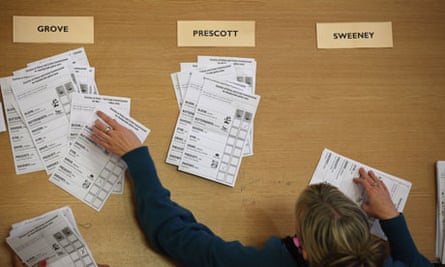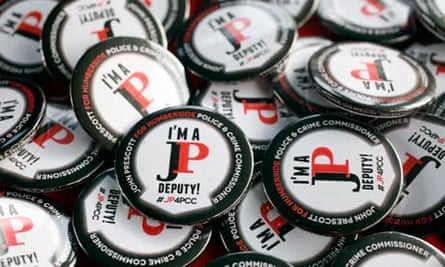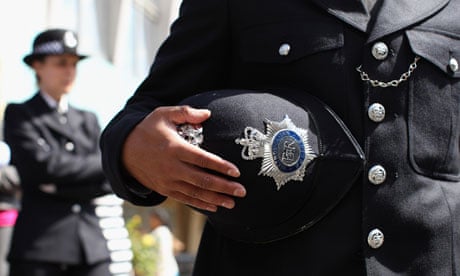Nearly 90% of voters in England and Wales have no idea who their police and crime commissioner is despite November's first direct elections, which cost £75m.
A study by the Electoral Reform Society (ERS) shows the elections, which recorded the lowest turnout in peacetime history, were poorly delivered and failed candidates and voters. Voters were left in the dark about who they could vote for, while candidates were kept away by huge deposits, unclear eligibility rules, vast electoral districts and high campaign costs.
The ERS, which predicted the low turnout of only 15.1%, said the Home Office had explained that the elections on 15 November had been held to "empower the public" and give them a "direct say on how their streets are policed".
Yet a Populus poll in the last week of January showed only 11% could correctly name their local commissioner – fewer even than the 15% who bothered to vote.
The ERS study, How Not to Run an Election, also includes the results of the largest survey of candidates' views, based on returns from 46 of the 192 who stood, showing that 88% felt awareness of the elections was "low", and of these 63% thought it was "very low".
One candidate said the "government's communications strategy was a complete disaster", while another described the official television advertising campaign as "appallingly prejudiced and stereotyped".
The Home Office's refusal to fund a direct mailing of candidates' statements to all voters, and instead rely on directing people to a website, was roundly condemned, with 98% of candidates saying they would have preferred the information to be sent in the post. One candidate said: "There is no excuse for the government to have failed to fund a Freepost mailing."

The research cites the results of a Populus poll in November, which found 45% of non-voters felt they did not have enough information to make a decision, and a further 19% did not agree with electing police commissioners.
Katie Ghose, the ERS chief executive, said: "This was a flagship policy designed to reconnect the public and the police. Yet after spending £75m, nearly 90% of Britons have no idea who their elected police and crime commissioner even is.
"November's bungled poll failed both candidates and voters. Government mismanagement has handed our elected commissioners a poisoned chalice, and it remains unclear how they can overcome it."
She said the official inquest report by the Electoral Commission, expected to be published in the next 10 days, must not pull its punches: "The government has singularly failed to accept any responsibility and would like to see nothing more than a whitewash."

Jenny Watson, the Electoral Commission chair, has said its report will "look at the risks of coming up with a major new poll without enough being done to engage potential voters, to address their concerns about the need for it, or to give them easy access to information about the candidates".
Watson recently told local authority chief executives that she hoped the government would learn lessons from the elections, and the official review would have "things to say about late legislation – incredibly late in some areas; the challenges of working with a government department that simply didn't have enough expertise in the detail of how elections work; and the impact of bringing forward the annual canvass in those areas that had PCC elections, to make sure the registers were as up-to-date as possible".
The study follows complaints by the Association of Electoral Administrators that the Home Office did not have sufficient resources or expertise to run the elections.
The Home Office has said the elections marked the biggest democratic reform of policing: "More than 5 million people turned out to vote for the first-ever election of police and crime commissioners, giving them an infinitely bigger mandate than the unelected and invisible police authorities they replaced," said a spokesman. "That number will only grow in the future as people see the real impact PCCs are already making in their areas, delivering on public priorities in tackling crime."
